4 reasons to see the new movie 'Hostages'
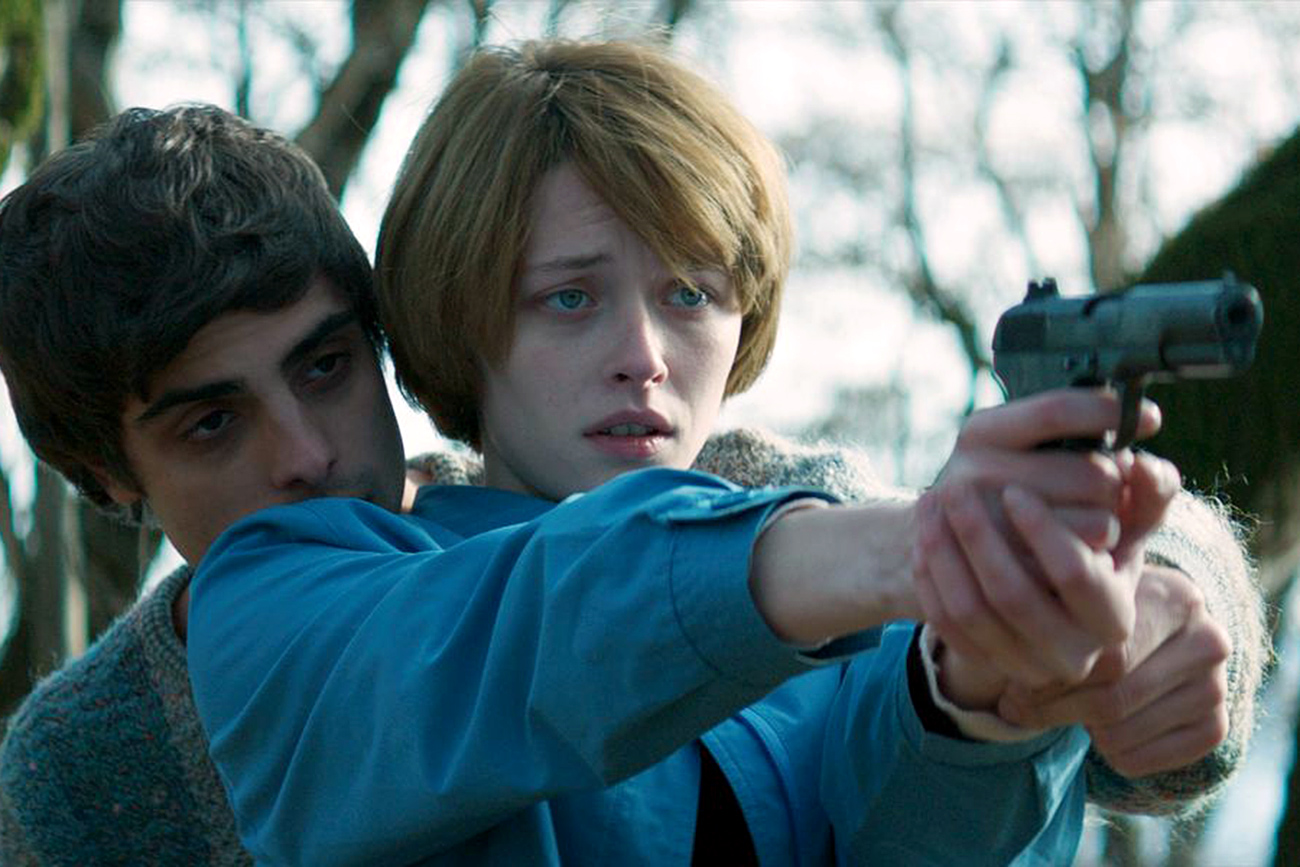
"They had only one demand—the plane must take them to Turkey. At one point, one of the aggressors pulled out a grenade and threatened to blow up the plane."
Kinopoisk.ru1. It’s based on a true story
On Nov. 17, 1983, local elites gathered to attend a wedding in Soviet Tbilisi. Tinatin Pеtviashvili, a relative of the leader of the ruling Georgian Communist Party, was getting married to the 21-year-old actor Gega Kobakhidze. Following the ceremony, the newlyweds—together with a few jet set friends—planned to travel to Batumi for a small, honeymoon trip. As the plane was approaching the city, two events occurred simultaneously.
First, the crew received an order from the dispatchers that they must fly back to Tbilisi because strong winds were making it impossible to land at their destination. Next, just a few minutes after the conversation with the dispatcher, some of the young people, who had been having fun at the wedding only two hours before, grabbed guns, killed one of the passengers and injured a flight engineer.
They had only one demand—the plane must take them to Turkey. At one point, one of the aggressors pulled out a grenade and threatened to blow up the plane. The pilots didn’t fly to Turkey, however, and the plane finally landed in Tbilisi on the night of Nov. 19. Just a few hours later an assault began, which resulted in the death of a flight attendant.
The whole group, except for Pеtviashvili, was sentenced to capital punishment as a result. Even today, no one, including relatives of the executed, knows the location of their graves. This story is well known in Georgia but did not receive wide coverage throughout the USSR. Rezo Gigineishvili is the first director to closely study all available documents about the unsuccessful hijacking and he is now presenting his view of these November 1983 events to a wider audience.
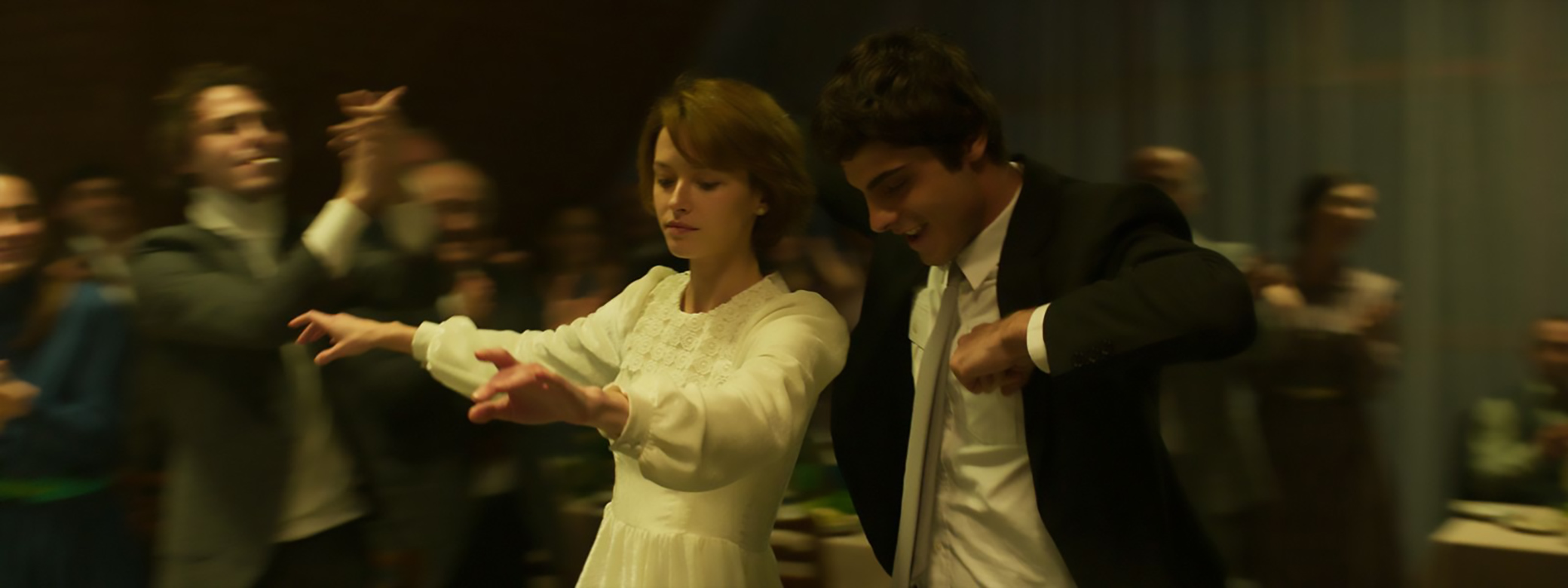 "Some of the young people, who had been having fun at the wedding only two hours before, grabbed guns, killed one of the passengers and injured a flight engineer." Source: Kinopoisk.ru
"Some of the young people, who had been having fun at the wedding only two hours before, grabbed guns, killed one of the passengers and injured a flight engineer." Source: Kinopoisk.ru
https://www.filmpro.ru/materials/56846
2. The film is a tragedy about the blind faith
The director displays a noticeable bias towards those who carried out the hijacking, especially the newlyweds, who acted accomplices but were not armed. However, the perspective is not so sympathetic as to justify the deaths that occurred.
It is not by mere chance that, during the last scene of Hostages, all the characters repeat again and again, "Why did they do that? They had everything!" It is also no coincidence that the bride’s mother eventually says, after many years, "Were other people’s lives worth your freedom?" She receives a paradoxical answer from her daughter, "We did it because you were saying what an awful country we lived in."
The director attempts to address generalizations about globalization in the movie. This film shows how idealists often turn out to be unprepared to face reality, and demonstrates that freedom, when paid with the blood of another, is futile. The characters in Hostages quickly come to understand that their plan has failed, yet they still proceed hopelessly toward certain death. This movie is also a tragedy about the blind faith that inexorably directs the characters’ fates, forcing them to gradually transform from freedom fighters into criminals as they become killers and, eventually, victims of their own actions.
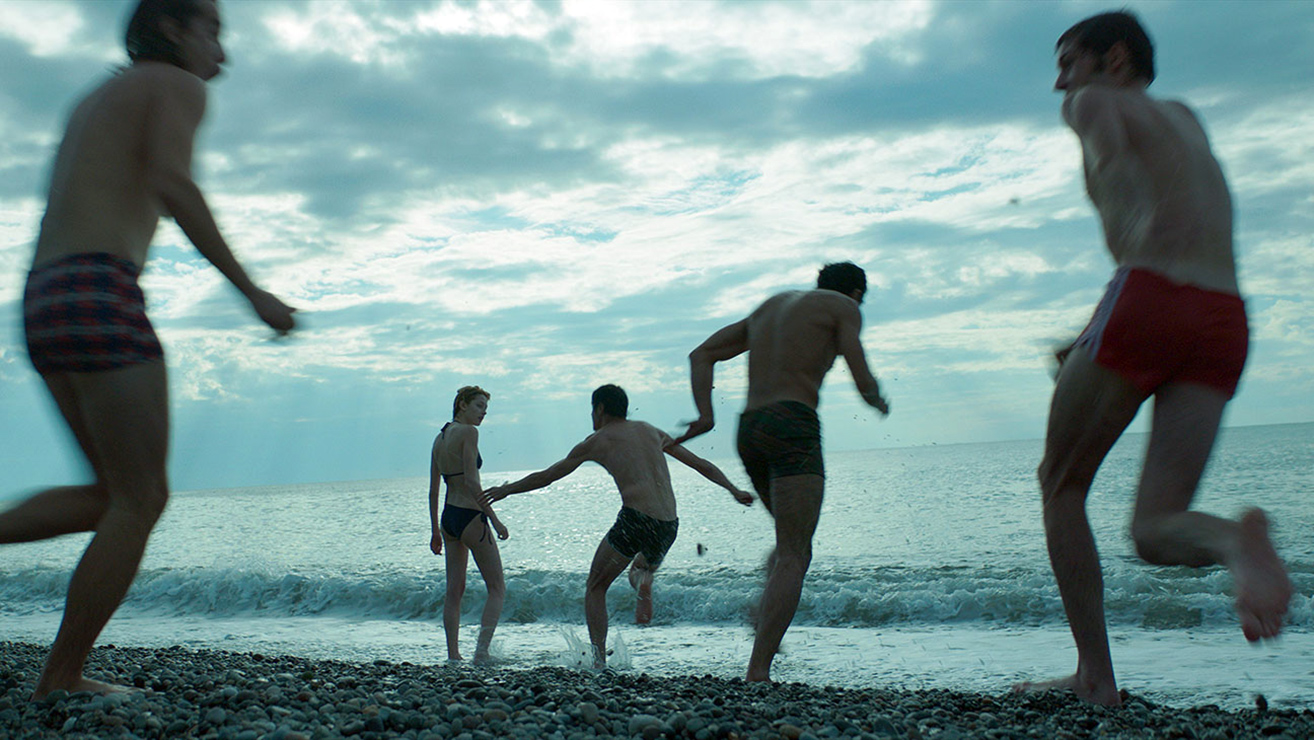 "Were other people’s lives worth your freedom?" Source: Kinopoisk.ru
"Were other people’s lives worth your freedom?" Source: Kinopoisk.ru
3. The star-studded cast
The movie stars the best actors of Georgian cinema. The bride is portrayed by Tina Dalakishvili, who became famous in 2014 after appearing in Anna Melikyan’s film Star, which was shown at a number of European film festivals. The role of the groom is played by Irakli Kvirikadze, a newcomer to the screen, who is currently attending film school in Los Angeles. As a result of his role in Hostages, he is expected to become a Georgian sex symbol.
The well-known actor Merab Ninidze appears as the groom’s father and there is an interesting backstory to how he was cast for this role. Shortly before the hijacking took place, Kobakhidze, the groom in real life, was cast as the lead in Repentance, a movie by legendary filmmaker Tengiz Abuladze. Several scenes had already been filmed before the wedding and subsequent hijacking attempt took place. After Kobakhidze was sentenced to death, all the scenes featuring him were destroyed. It was Ninidze who replaced him and took the starring role in Repentance.
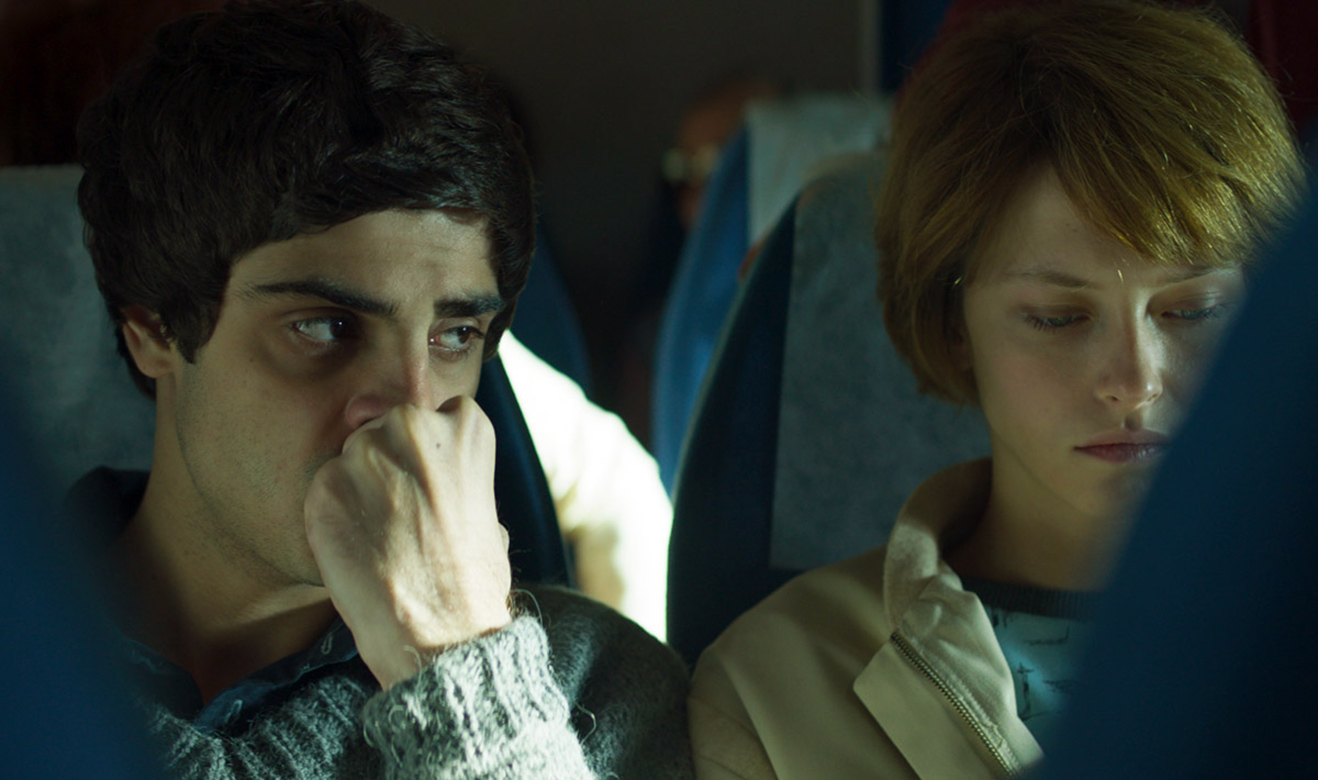 "As a result of his role in Hostages, Irakli Kvirikadze is expected to become a Georgian sex symbol." Source: Kinopoisk.ru
"As a result of his role in Hostages, Irakli Kvirikadze is expected to become a Georgian sex symbol." Source: Kinopoisk.ru
4. Fantastic camera work
Vladislav Opelyants is one of the most famous Russian camera operators, known for his ability to work in any style. He is well known for filming Burnt by the Sun 2, by the Oscar-winning director Nikita Mikhalkov, and is capable of everything from "grand style" to modest art-house pictures and music videos. However, with Hostages he truly surpasses himself. For example, the wedding scene is one of the most fascinating example of cinematography to come from the post-Soviet region in the last ten years.
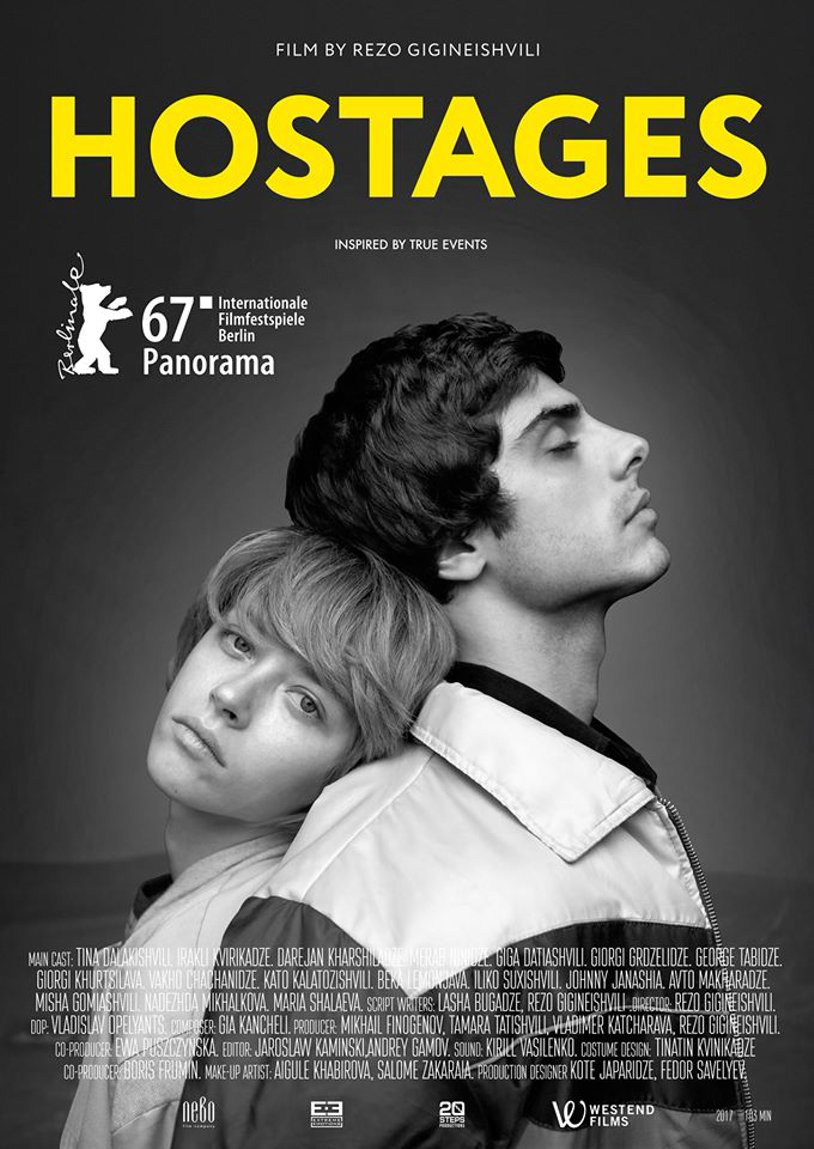 Hostages poster. Source: Kinopoisk.ru
Hostages poster. Source: Kinopoisk.ru
If using any of Russia Beyond's content, partly or in full, always provide an active hyperlink to the original material.
Subscribe
to our newsletter!
Get the week's best stories straight to your inbox